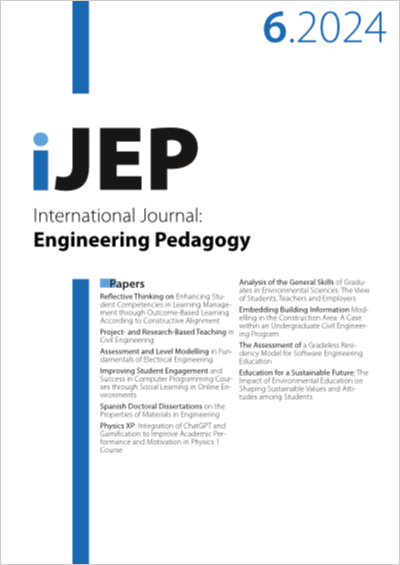Assessment and Level Modelling in Fundamentals of Electrical Engineering
DOI:
https://doi.org/10.3991/ijep.v14i6.47865Keywords:
Fundamentals of Electrical Engineering, Assessment, Level-Modelling, Electrical Problem-Solving CompetenceAbstract
This paper focuses on the module “Fundamentals of Electrical Engineering,” in which students from different engineering disciplines often face difficulties. Despite efforts to enhance the course through digital media, the formation of study groups, and adjusted lecture and exercise materials, there is still a high failure rate in the subject, leading to potential student dropouts. The primary goal is to analyze students’ challenges in solving electrical engineering problems to evaluate their grasp of the fundamentals of electrical engineering and identify varying levels of competence. The findings are based on a cross-sectional study conducted at the conclusion of a university course in Germany, involving 196 students. Through item response theory (IRT) analyses, it was determined that the assessment items demonstrated satisfactory fit values. The proficiency model delineates four levels, with only 8.2% of students achieving the highest level. At this stage, students can tackle more intricate problems using circuit analysis techniques. However, a notable portion of students (40.3%) lack a basic understanding of electrical circuits, placing them at the lowest level.
Downloads
Published
How to Cite
Issue
Section
License
Copyright (c) 2024 Alison Klein, Jens Müller, Nico Link, Rainer Schaffer

This work is licensed under a Creative Commons Attribution 4.0 International License.



